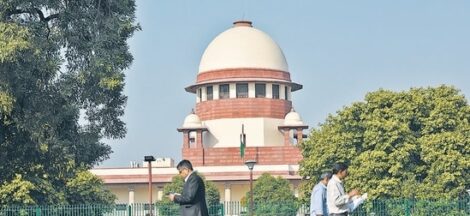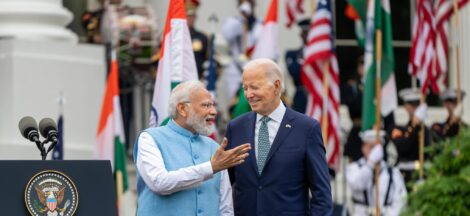The series of by-election defeats suffered by the BJP in Rajasthan, Madhya Pradesh, Uttar Pradesh and Bihar along with its failure to form a government in Karnataka and the party’s uncertain prospects in the three assembly elections this winter cannot but have made the saffron dispensation nervous about the next general election.
Realizing that the BJP’s sabka saath, sabka vikas mantra has lost the appeal it had in 2014, the party appears to have decided to fall back on its time-tested formula of communal politics based on projecting a “nationalistic”, pro-Hindu image to rally its supporters. The break-up of the BJP’s ties with the People’s Democratic Party (PDP) in Kashmir is its first big throw of the dice in this respect.
Irrespective of whether the alliance with the PDP was hurting the BJP in Jammu because of the former’s alleged indifference towards the Hindu-majority region, there was no way that the BJP could have continued to be in the PDP’s company if it continued to lose ground in the rest of the country.
To recover the BJP’s position in the mainland, therefore, the tie-up with the PDP had to be terminated in order to enable the BJP adopt a hardline against the terrorists as well as the home-grown militants. The BJP has no doubt that such a tough stance will be welcomed by the hard core of its supporters, who include the party’s virulent army of trolls and the equally vitriolic newsmen in the pro-BJP channels.
It is open to question, however, whether the beating of the nationalist drum will enable the BJP to reverse the electoral tide which has been running against it in recent months. The answer will be available in the Rajasthan, Madhya Pradesh and Chhattisgarh elections in a few months’ time.
But the BJP will have to be wary about the possibility of the verdict being influenced not only by its “surgical strike” against the PDP, as Omar Abdullah has said, but also by a worsening of the already fraught situation in the Valley.
A deterioration will not only highlight the Narendra Modi government’s failure to handle the sensitive situation in Kashmir, but may also lead to a setback on the diplomatic front if only because, to the world in general, the ups and downs in Kashmir are associated with India’s strained elations with Pakistan.
As the suggestion made at the recent Shanghai Cooperation Organization (SCO) conference by China and Russia about their willingness to constitute a “peace platform” to bring India and Pakistan together showed, the international community is becoming concerned about the unending tension between the two hostile neighbours on the subcontinent as a result of their differences over Kashmir.
The suggestion by the Chinese ambassador in India about a trilateral conference involving India, Pakistan and China is in line with the SCO proposal, even if it hasn’t been endorsed by Beijing. If anything, these initiatives denote that India’s insistence on a bilateral solution to the India-Pakistan problem is no longer taken as the last word on the subject.
A worsening of the situation in Kashmir in such circumstances is bound to encourage more such “friendly” overtures. It is incumbent on the BJP, therefore, to ensure that its preference for a “muscular” approach to the unrest in Kashmir does not lead to more clashes between the security forces on one hand and the terrorists infiltrating from Pakistan as well as the local stone-throwers on the other.
As it is, a human rights panel of the UN has expressed dissatisfaction over the civil liberties in Kashmir, much to India’s chagrin. A deteriorating situation can persuade more such organizations to come forward even if New Delhi dismisses them as busybodies.
Up until now, India has banked on Pakistan’s dalliance with terrorism to keep the world at bay, especially with President Donald Trump adopting a harsh line on Pakistan’s harbouring of anti-India and anti-Afghanistan jihadis on its soil. However, the emergence of the teenaged stone-throwers in the valley has made the scene difficult for India. It is obvious that a “muscular” line against these school- and college-going kids will not pay dividends
What the appearance of the stone-pelters underlines is a deepening of the alienation of the local people of all ages from the government at the Centre. This psychological gulf cannot be bridged with a display of military might. The security forces may be able to bring about a semblance of surface calm by making a large number of arrests and by their pervasive presence.
But neither the world, nor the rest of the country, will see such a state of affairs as normal. Moreover, since such conditions cannot be allowed to continue indefinitely, New Delhi will have to make an effort sooner or later to reach out to the ordinary people and other stakeholders in Kashmir for the sake of peace.
Since the BJP’s latest step is intended to boost its image of toughness with an eye on impressing the electorate, the party will also have to guard against the possibility of the widening rift between Kashmir and the rest of the country being seen as a major policy failure and, therefore, proving to be counterproductive in the matter of winning votes. (IPA Service)
The post Kashmir: BJP’s 2019-Driven Hindu Card May Not Work appeared first on Newspack by India Press Agency.


